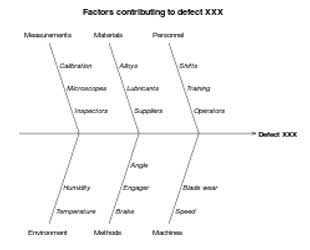Tutorials, articles, tools and resources on how to perform root cause analysis in software testing.
Root Cause Analysis (RCA) is an approach used in software quality to identify the root causes of bugs or issues and address them instead of treating the symptoms. In this article, Mush Honda explains that RCA can be applied to end user feedback as well as software defects during software testing and provides some tips on how to apply RCA.
This article will help software testers to gain an understanding of the specific practices that are commonly practiced by financial service providers in financial software testing of banking and financial services applications. Banking applications include core banking, retail, private, corporate, investment, credit card applications and financial services applications like payment gateways, mutual funds applications.
Root Cause Analysis (RCA) is an approach used in software testing to identify the root causes of defects or problems and address them instead of treating the symptoms. It’s a process that grew out of accident investigations to become a standard feature of hardware engineering. If something is broken, instead of just fixing it at the point of discovery, let’s investigate and try to fix the underlying cause at the point of origin. This principle is applicable for software development and software testing, so much so, that it could have been developed to deal with software defects.



